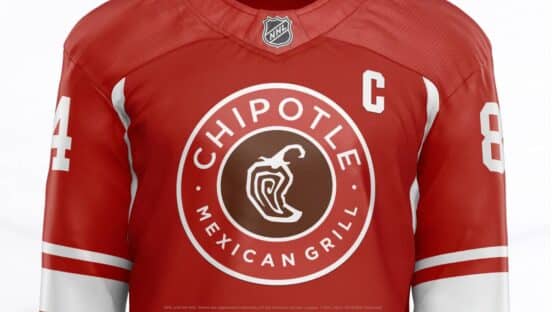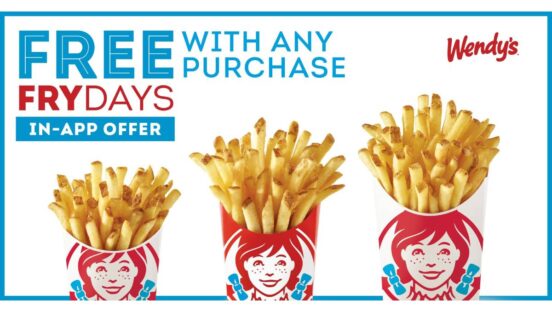Several quick-service restaurants are doubling down on their health and wellness efforts thanks to the new REAL Certification program from the United States Healthful Food Council (USHFC).
Established in 2011, the USHFC is a Washington, D.C.–based nonprofit, nongovernmental organization dedicated to fighting obesity, diabetes, and other food-related diseases by increasing access to healthful, affordable, and sustainable food and beverages. The USHFC works toward its mission through the REAL Certification, nutrition analysis, menu labeling, and recipe consulting.
USHFC president Lawrence Williams, an entrepreneur with an economics background, says the more he read about the sustainable food movement in the U.S., the more he felt compelled to effect change—a change he believes is well within reach. In the case of the healthful food movement, Williams says, he employed the same approach as he might to economic problems plaguing the country.
“I started thinking of this in a systematic way,” he says.
In developing the REAL Certification, Williams weighed the interests of the business versus those of the consumer. He also explored certification models that encouraged positive change in other industries.
The Leadership in Energy & Environmental Design (LEED) certification from the U.S Green Building Council (USBC) was one model he studied. LEED provides building owners and operators a framework for identifying and implementing practical and measurable green building design, construction, operations, and maintenance solutions.
In looking at the energy-efficiency movement, and the USBC’s role in particular, Williams says, he felt inspired to create lasting and meaningful change.
“LEED building standards are a way [the USBC] better aligned with the end-use of the customer,” he says, as opposed to the government approach, which usually is the “lowest common denominator.”
Eventually, the REAL Certification was designed to break goals down into “manageable steps,” Williams says. That includes an 80-plus-point data system, the REAL Index, that covers topics such as use of vegetables, fruits, whole grains, and healthful cooking and preparation methods; moderate portion sizes; behavioral components that encourage better-for-you choices; and sustainable practices for food sourcing.
In short, a REAL Certification signals to the public that the entire establishment—not just a few menu items—has nutrition and sustainable sourcing at its core. And customers can rest easy knowing the certification is legitimate; the certification process requires a third-party examination that includes menu analysis, on-site inspection and interviews, recipe audits, and a supply chain review.
Several restaurants have already achieved REAL Certification and they vary in cuisine and scope, Williams says. His organization initially approached D.C.-area restaurants to educate them and encourage certification, but news about the program eventually spread across the foodservice industry. “As we got more press, more [restaurants] were self-identifying, saying, ‘We’re doing that,’” he says.
Today, there is a “good balance” between independently owned restaurants and chains, Williams says, but there is a growing emphasis on working with regional and national chains.
“We’re moving in that direction,” he says. “A lot of it is driven by demand.” Chain quick serves that have been certified include Energy Kitchen and Chipotle-owned ShopHouse Southeast Asian Kitchen.
Regardless of the type of restaurant, Williams says, the USHFC is trying to encourage operators to make healthy and sustainable food more attainable. “We’re trying to honor and recognize those doing the right thing,” he says.
Among those doing the “right thing” is the Union Pacific Café, located inside railroad franchise Union Pacific in Omaha, Nebraska, and operated by Guckenheimer, a corporate restaurant management company. On June 6, USHFC announced that four Guckenheimer cafes, including the dining room at Union Pacific, were the first contract foodservice restaurants to receive the REAL Certification.
“Guckenheimer has a long tradition of emphasizing culinary excellence and health,” says Guckenheimer CMO Karla Lacey. “We were delighted to participate in the pilot program with USHFC to help define how the process of certification should work for foodservice companies.”
Lacey views the certification as something that could significantly affect the bottom line.
“This café is open to the public, so as awareness of the REAL Certification increases, we hope to see increases in sales from the segment of the dining public who are interested in healthy eating,” she says.
But Margo Wootan, director of nutrition policy for the Center for Science in the Public Interest (CSPI), says the term healthy eating may be too elusive to draw lines around with a certification and says the REAL Certification’s metrics could be misleading to the general public. For example, some people might think the term natural is equal to nutritious, she says.
Another metric on the index, sustainability, can be misleading as well, Wootan says. “You could have lard from sustainable pigs, but it’s still lard that’s going to clog your arteries,” she says.
Wootan doesn’t dismiss the REAL Certification entirely, but says customers and operators should approach it with an attitude of caution.
“The REAL Index could be helpful for people who want to eat healthfully and sustainably, but it doesn’t guarantee healthiness,” she says, noting that the moderate portion size data point is the “most important” aspect of the index.











